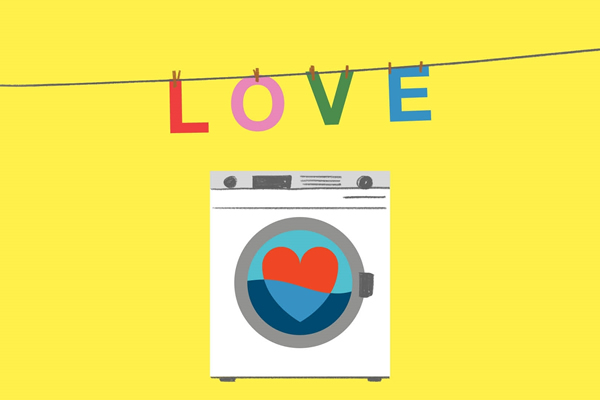
Ernest Hemingway’s work is widely available in print, e-book and audio formats.
“I went to the garage and cried when your Mom died,” my Dad told me a half century ago, “I didn’t want anyone to see me crying.”
“Men aren’t supposed to cry,” he added
“Why?” I asked.
“Read Hemingway,” he said, “ then you’ll know why.”
Decades later, we still avidly read Hemingway, who lived from 1899 to 1961.
We heatedly debate: Was Hemingway one of America’s greatest writers (a 20th century Mark Twain or Walt Whitman)? Or an avatar of toxic masculinity?
Gertrude Stein taught him about writing. Yet, in his work, he made homophobic references to “fairies.” He wrote with empathy of women dying in childbirth, while penning paragraph after paragraph about bullfights.
But, “Hemingway,” a new three-part documentary by Ken Burns and Lynn Novick streaming on PBS, makes Hemingway, with all his contradictions, come alive. Actors from Jeff Daniels to Patricia Clarkson to Meryl Streep bring Hemingway, his parents and wives (he was married four times) to life.
“Hemingway” reveals that Hemingway, the ultimate man’s man, was into androgyny – what we’d today call gender fluidity.
Hemingway’s story is well known. Born in Oak Park, Ill., he was a reporter with the Kansas City Star, before he enlisted as an ambulance driver in World War I. During the War, Hemingway was wounded and fell in love with a nurse, who rejected him.
He and his first wife Hadley Richardson moved to Paris in the early 1920s. There, Hemingway worked for a while as a reporter, then quit to become a “starving” writer. His hunger pangs enhanced his writing. “Hunger is good discipline,” he wrote in “A Moveable Feast,” his memoir of his time in Paris in the 1920s.
Actually, Hemingway wasn’t poor in Paris. Hadley had a trust fund. In Paris, Gertrude Stein and other writers mentored him. “The Sun Also Rises,” his first novel, published in 1926 was a critical and commercial success.
After that, Hemingway lived in Key West, Fla., and Cuba; and was a war correspondent in the Spanish Civil War and World War II. He received the Nobel Prize in literature in 1954. Everyone from Marlene Dietrich to GIs in World War II called him “Papa.”
At 61, he killed himself in Ketchum, Idaho, where he and his fourth wife Mary Welsh lived.
“Hemingway,” breaks through the “Papa” mystique. Hemingway’s father, suffering from depression, killed himself. (Hemingway would suffer from depression, traumatic brain injuries and alcoholism.) His mother Grace dressed Hemingway and his sister identically when they were young. She gave them toy rifles and dolls to play with.
Later, Hemingway and Welsh liked to switch roles in bed, says Mary V. Dearborn, author of a terrific bio of Hemingway.
Hemingway would be the girl and Welsh would be the boy. They cut their hair to the same length. “In a way, he wanted to be a woman in love with another woman,” Dearborn says.
Not surprisingly for his time, Hemingway was enraged when his son Greg (who was trans and later known as Gloria) was arrested in 1951 for wearing women’s clothing in a women’s restroom. The two later reconciled.
The documentary helped me understand why I love some of Hemingway’s work (“The Sun Also Rises,” “A Farewell to Arms,” “A Moveable Feast”).
For despite his he-man image, Hemingway writes movingly of love and death. Through his deceptively simple, repetitive sentences, he makes you feel life as you read. Hot off the page.
What we remember most from his books isn’t the wars or the bullfights. It’s Catherine dying in child birth in “A Farewell to Arms.”
It’s the woman in the short story “Hills Like Elephants.” Her boyfriend keeps trying to pressure her into having an abortion. “Please, please, please, please, please, please, please, would you just stop talking?” she says to him when he won’t stop mansplaining.
It’s David and Catherine, the couple in the posthumously published “The Garden of Eden,” who, defying convention, switch gender and sexual roles.
Hemingway is a writer for our moment, when we’re struggling with toxic masculinity and viewing gender in new ways. Check out “Hemingway,” on PBS online. Better yet, read one of Hemingway’s books.
The Link LonkMay 04, 2021 at 09:05PM
https://www.washingtonblade.com/2021/05/04/laundry-is-his-love-language/
Books20 mins ago Laundry is his love language - Washington Blade
https://news.google.com/search?q=Laundry&hl=en-US&gl=US&ceid=US:en

No comments:
Post a Comment